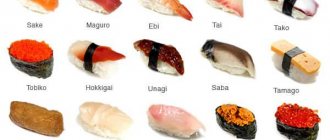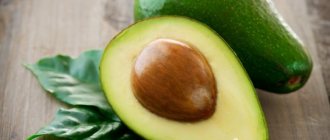Lemons are brought to us from Turkey, Argentina, South Africa, China, Morocco and other countries. There are citrus fruits on store shelves all year round, but it is difficult to get quality lemons on sale.
Many housewives prefer to buy a batch of lemons at once if they are lucky enough to find ripe ones with thin peels, without black spots and elastic to the touch. And when you already have several kilograms of southern fruits lying around at home, it’s time to think about how to preserve lemons for a long time. Let us consider in detail each of the possible storage options.
Where is the best place to preserve fruit?
It’s annoying to find a lemon covered with strange spots, soft and bitter inside. If stored improperly, citrus fruits quickly wither and are affected by green and gray mold fungi.
To prevent the fruit from disappearing prematurely, the storage location should be cool, moist and dark. The shelf life of fresh domestic lemons is 5-9 months, imported ones - 2-3 months.
Temperature
Citrus fruits do not last long in a warm room. They become glassy and taste bitter. The alcohol content of the pulp increases.
At temperatures below -2 degrees the fruits become cold. At +1+4 degrees they are affected by mold, brown spot and other diseases. In addition, low temperature stops the ripening process.
The optimal storage temperature for lemons is +6+8 degrees.
Illumination
Lemons are not recommended to be stored in light, especially in direct sunlight. Under the influence of ultraviolet radiation, they lose vitamin C and overheat.
The storage place should be dark.
Humidity
Dry air is detrimental to citrus fruits. The fruits begin to fade quickly, especially small and greenish (immature) fruits.
For long-term storage of lemons, it is recommended to maintain relative humidity at 80%.
Neighborhood
Fruits are stored separately from meat, fish, and prepared foods. These are the golden rules. Besides:
Lemons do not tolerate being near bananas and cabbage.
You can store them next to melons and tangerines. Neutral neighbors are apples, grapes and potatoes.
Airtight bag
One of the fairly new ways to store lemon is in an airtight bag. It has a special clasp that prevents moisture or gases from getting inside.
Sliced lemons are packed into the packaging as tightly as possible. You need to squeeze out the air and then carefully close the clasp.
It is ideal to use a special device to create a vacuum, which can be purchased in online stores. But even with a small amount of air, the lemons will not spoil and will be preserved for a long time.
Storing whole lemons at home
The best way to store lemons at home is in the refrigerator. But if there is not enough space in the drawer for fruits and vegetables, you can organize storage at room temperature. For example, on the balcony, in the pantry or basement.
It is important to remember 3 rules:
- Fruits placed for storage are carefully inspected and spoiled ones are removed.
- Lemons are not washed so as not to damage the peel.
- Fruits should not squeeze each other (ideally, not touch at all).
At room temperature
If you leave a lemon on the table in the room, it will spoil in 10-14 days. If you also forget to remove the package, the shelf life will decrease by 2 times.
Fresh fruits should not be stored in plastic bags - they become covered with perspiration and quickly become moldy.
To extend shelf life at room temperature, the following tricks are used:
- Paper wrapping.
- Coating with melted natural wax.
- Lubrication with vegetable oil.
You need to choose a place that is as cool and dark as possible. The best place to store citrus fruits is to use a pantry. Fruits are stored in a box with sawdust or sand. Instead of sawdust, you can finely tear paper.
If you use some tricks, lemons can stay in the pantry for up to 2 months.
In a refrigerator
In the refrigerator compartment in the compartment for vegetables and fruits, the temperature is maintained at +8 degrees and humidity 90%. These are almost ideal conditions for storing lemons. On the top shelf of the refrigerator it is a little colder - +7 degrees, which is also suitable for citrus fruits. They may not spoil for up to 7-9 months (1-2 months guaranteed).
Store whole lemons in the refrigerator's fruit and vegetable drawer without packaging.
No need to wrap them in paper or bags. The lemon maker is just as inappropriate here as are plastic trays or any container with a lid. They are only relevant for cut fruits.
Sometimes it is advised to store whole lemons in the refrigerator in a jar of water. This method has the right to exist only if the water is changed every day.
In the freezer
Freezing helps preserve lemons for a long time (4-5 months).
It is preferable to freeze the whole fruit in the blast freezing compartment. This way they will retain more nutrients.
Before freezing, the peel is cleaned of wax and thoroughly dried. The hardened fruits are placed in a tight bag or plastic container. Subsequently, they can be used to prepare lemonades and sauces. There is no need to defrost lemons. When defrosted, they soften and lose a lot of juice. It is most convenient to cut them slightly thawed.
On the balcony and in the basement
It is best to store a large supply of lemons in the basement. It's dark, cool and damp here. Balcony for storage is worse.
Storage in wooden or cardboard ventilated boxes is recommended. It is advisable to lay out the fruits in one layer.
- If storing in one layer is not possible, paper will help preserve lemons for a long time. It must be clean and dry. Each fruit is loosely wrapped and placed in a box.
- In a room that is too warm and dry, you can store fruits in sand. Before this they are wrapped in paper. A 1 cm layer of sand is poured into the box. The lemons are laid out in a checkerboard pattern. Cover the fruits with sand so that they do not peek out. Sand is used clean and dry.
Preparing citrus for long-term storage
Appearance does not always characterize the integrity of the fruit; before sending it for storage, each fruit should be assessed by touch. If the skin is too soft, this indicates that the product is frozen or damaged. Such fruits are cut, the unnecessary part is removed, the rest is cut into slices and one of the home storage methods is used.
Whole fruits are thoroughly washed under running water, wiped, and dried on a paper towel. Depending on further use, lemons are combined with other ingredients or stored individually.
Methods for storing cut lemons
Cut fruits do not store as well as whole ones. If you do not perform any manipulations, the lemon will spoil in 3-7 days.
After cutting, the lemon should be stored in the refrigerator in the vegetable compartment or on the top shelf. Recommended temperature – +6+8 degrees.
To prevent it from drying out, it is recommended to leave a “lid” of the peel. The “lid” covers the exposed flesh. You can also use lemongrass - a glass plate with a high lid. It will prevent rapid withering and prevent the lemon from becoming saturated with foreign odors.
We recommend: How to properly store dried fish
The fruit can be stored in lemongrass for 7-10 days.
Lemons in sugar
Sugar is one of the most accessible preservatives in the kitchen. It retains the taste and smell of citrus fruits well. In addition, most people sweeten lemons before eating.
Sugar allows you to store cut lemons for a very long time - 6-9 months.
For storage:
- Fruits with or without peel are cut into slices (circles).
- Sprinkle sugar in a 1 cm layer at the bottom of a dry and clean container.
- Lay out the lemon slices in rows.
- Sprinkle 0.5 cm of sugar on top.
- So alternate 3-5 layers, and cover the container with gauze or mesh.
Store the workpiece in a dry place at room temperature. Candied slices are added to tea and other hot drinks.
Lemons in sugar do not spoil. They slowly dry out until they turn into a treat.
Storage in salt
The next method is suitable for gourmets. Salted lemons are one of the favorite condiments of the people of Morocco and Tunisia. Sauces, potatoes, rice, meat, chicken, and seafood are prepared with them. When salted, the peel softens, and the lemon aroma and taste are enhanced many times over. Need to:
- Make deep longitudinal cuts crosswise on the lemons.
- Pour about 1 tbsp inside. a spoonful of coarse rock salt (for each fruit).
- Place the fruit tightly in a sterilized jar.
- Leave in the refrigerator for 3-4 days.
- During this time, juice will be released, which should completely cover the lemons. If there is not enough juice, you need to squeeze it out of fresh fruit and pour it into a jar.
- After this, the jar is closed with a lid and stored in the refrigerator for 6 months.
You can start using the seasoning after 3 weeks.
Frozen lemons
The best way to keep cut lemons fresh is to freeze them in portions.
- To add to tea, the fruit is cut into slices, laid out on a board in one layer and frozen for 5 hours. The hardened slices can be poured into a bag or plastic container. They will not stick together and take up minimal space.
- You can freeze cut lemons into quarters. But you should remember that it is not recommended to defrost fruits before use. Large pieces can be added to compotes or used to make refreshing lemonade.
If you dip a frozen lemon slice into hot tea, the taste of the drink will be just as rich and bright. The slice will look and taste like fresh.
Once cut, frozen lemon can be stored in the freezer for up to 3 months.
Storage on a saucer
Most often, after cutting, the lemon is simply stored on a saucer. To extend the shelf life to 2 weeks, it is recommended to do the following:
- Pour 1 tbsp into a saucer. spoon of sugar.
- Place the cut side of the lemon into the sugar bed.
- Cover it with a cup.
- Place in the refrigerator on the top shelf.
How else can you store lemons?
Sour fruits are rarely eaten in their pure form. They are usually added to drinks and cooked in various dishes.
For use in cooking, lemons can be stored in the form of jam, candied fruits, etc.
The harvesting process is slow, but it allows you to preserve the product for 1-2 years. If there are a lot of fruits, then this is the best option. After processing, they will take up minimal space.
Canning
In Russia, few people resort to canning lemons. But in vain. Fruits prepared in this way can be stored for 2 years. You can open the jar at any time and treat yourself to a vitamin-rich treat or prepare a dish with a bright taste and aroma.
Lemons are preserved:
- whole (salty, spicy);
- pieces in sweet syrup;
- in the form of jam and jam;
- in the form of compote.
Recipe for spicy pickled lemons:
Sour citrus fruits go well with apricots, apples, quince, strawberries, mint, ginger, and cinnamon. You can roll them into jars in the classic way. Conservation almost never explodes.
Lemon is a natural preservative.
Jelly
Lemon jelly is considered one of the most delicious and healthy. It invigorates, promotes weight loss, improves the functioning of the cardiovascular system. The only bad thing is that the jelly cannot be stored for a long time.
The shelf life of lemon jelly in the refrigerator is 4-8 days, in the freezer - 1 month.
It should be taken into account that freezing destroys the structure of the dessert. Ice crystals form inside. Recipe for delicious lemon jelly with gelatin:
Candied fruit
Candied lemon peels can be used to decorate cakes, eat them instead of sweets, decorate a New Year tree, and, of course, add them to baked goods.
Candied lemon peels can be stored for up to 2 years.
Candied fruits are stored longest in syrup. As you know, pieces of fruit are boiled in sweet water for a long time. When they become translucent and soft, remove from the syrup and dry on a wire rack for 7-10 days. After complete drying, the candied fruits are sprinkled with powdered sugar and stored in a glass jar in the refrigerator, pantry or cellar for 9-12 months.
You don’t have to remove the candied fruits from the syrup and just roll them straight into jars. Then the shelf life will increase to 24 months. Recipe:
- Cut the fruits into circles (slices, cubes, strips).
- Place in boiling water for 1 minute.
- Transfer to cold water with ice.
- Once completely cooled, drain in a colander.
- Take an amount of sugar equal to lemons and the same amount of water.
- Boil the syrup.
- When the syrup becomes thick (after about 10 minutes), add lemons to it and reduce heat to low.
- Cook the candied fruits over low heat, avoiding boiling, for 1 hour.
- Roll into jars.
Recipe for candied lemon peels:
Jam
Lemon jam is a storehouse of vitamin C. By eating a tablespoon of it a day, you will forget about a cold during the cold season. And if you are already sick, tea with lemon jam will help lower your temperature and recover faster.
- To prepare 0.5 liters of lemon jam you will need 3 lemons, 300 g of sugar and 1 tbsp. spoon of water.
- Citrus fruits are cut into quarters and pitted.
- Grind together with the peel with a blender (can be twisted in a meat grinder).
- The lemon mass is mixed with water and sugar.
- Cook the jam after boiling for 5 minutes over low heat.
- After this, you need to immediately roll it into a jar.
We recommend: How to store peeled potatoes - methods and timing
You can not boil the lemons, but put them in the refrigerator immediately after adding sugar. This jam is even healthier. But it is stored for less time - 9-12 months (versus 2 years).
Lemon with honey (ginger)
Lemon-honey (ginger) mixture is a popular remedy for boosting immunity. You need to eat it 1 tbsp. spoon per day for 2 weeks. Then take a break for 2 weeks. Lemon and honey can be added to slightly cooled tea, warm compote, juice or just water.
Lemon with ginger (honey) can be stored in the refrigerator for 6-7 months.
How to prepare lemons with honey:
- Cut 500 g lemons into 4 parts.
- Remove the seeds.
- Grind with a blender into a fine paste.
- Mix with 250 ml honey.
Lemon-honey-ginger mixture recipe:
- Cut 400 g of fruits and remove the seeds.
- 100 g fresh ginger root, peeled and cut into cubes.
- Grind everything in a blender bowl.
- Mix with 250 ml of honey.
Drying lemon
Lemon drying is good in hot drinks - tea, coffee, mulled wine. It can be ground and used as a seasoning. The product is stored for 2-3 years.
To prepare drying, lemons are cut into circles 3-5 mm thick (no thicker).
There are several drying methods:
- In an electric dryer. The circles are dried at a temperature of 55 degrees for 24 hours.
- In the oven. Drying is done on a wire rack at the lowest temperature. The oven door is opened slightly. To preserve nutrients, it is recommended to dry the mugs for 20 minutes with a break of 6 hours. Usually 2-3 warm-ups are enough.
- On the balcony (street). Lemon circles are laid out in the shade on a wire rack and covered with gauze. On the third day they turn it over. On average, they dry completely in 7-10 days.
The drying yield from 1 kg of lemons is 120 g.
Dried lemon is best stored in a cotton bag or glass jar. The place should be dry, well ventilated and dark. The pantry and kitchen (bottom drawer of the kitchen unit) are good for storage.
Candied fruit
To prepare candied fruits, you will need ripe lemons, which are cut with a sharp knife into thin slices no more than 5 mm thick. They are placed in a pan, filled with cold water and left for 1 day to remove the bitterness. Then the water is drained, and the slices are placed in a saucepan in layers, sprinkled with sugar.
After 2 hours, when the lemons have released their juice, put the pan on the fire and boil for 5-7 minutes. Remove from heat and leave overnight. After this, the lemons are boiled and infused 1 or 2 more times. Then the lemons are placed in a sieve to allow the syrup to drain, and then onto a baking sheet. Dry the slices in a warm place for 2-3 days. During this time, they are turned over several times and sprinkled with powdered sugar. The finished candied fruits are wrapped in parchment and sent to the refrigerator.
Preserving lemons if there are too many of them to eat at one time is within the power of every housewife. To do this, you just need to use any of the proposed options for storing these fruits at home.
How to preserve lemon zest for a long time?
Many people throw away citrus peels. But in vain. You can use it to harvest zest. The top layer of lemon peel gives dishes a bright color, smell, and taste. It contains the bulk of essential oils.
Lemon zest can be stored for a long time - up to 12 months when dried in an airtight container.
It is mainly used in cooking: preparing baked goods, aromatic drinks, sauces, marinades, lemon salt, sprinkled on fish, meat and salads before serving.
Before harvesting the zest, the lemons are washed with a brush, scalded with boiling water and wiped dry. Then cut off the thin colored crust with a vegetable peeler, a special knife, or grate the zest on a fine grater.
- The dried zest is stored in a tightly closed glass jar at a temperature of +8+20 degrees in a dark place. It is important to dry it well, and wash the jar and lid with soda and sterilize it. To dry, spread the zest in a thin layer on paper. It dries quickly - in 3 days at room temperature. The shelf life is 10-12 months. After this, the seasoning loses its taste and aroma.
- Frozen zest. After removal, the zest is dried on the table for 2 hours. Then frozen in a bag or food container. It remains crumbly and is easily divided into portions. The shelf life is 5-6 months.
- Fresh zest. For long-term storage, freshly peeled zest is mixed with sugar in a ratio of 1 to 2. In a glass jar in the refrigerator, it can last up to 7-9 months.
Frozen zest is suitable for preparing savory dishes and baked goods, fresh zest is suitable for confectionery and drinks. Dried zest is considered universal. Its taste and aroma are muted, delicate, piquant.
To prevent lemon zest from becoming bitter and to be stored for a long time, you need to remove it thinly. The recommended thickness of the removed layer is 1.5-2 mm.
Fruit selection criteria
A shiny skin indicates treatment with chemicals.
When choosing a lemon, you should be guided not by its color or shape, but by its degree of ripeness and quality. These criteria can be determined by eye.
The following signs will indicate the quality of the product:
- uniform color of classic yellow, without spots, dots, white fragments;
- the skin is elastic to the touch, smooth, even, without dents or soft areas;
- the product has a natural aroma that can be felt even from a short distance;
- when cleaning the crust, the presence of essential oils is observed: they remain on the hands or napkin as oil stains;
Attention! Shiny skin indicates treatment with chemicals.
It is believed that fruits with thin skin have a higher concentration of nutrients than those with thick skin.










